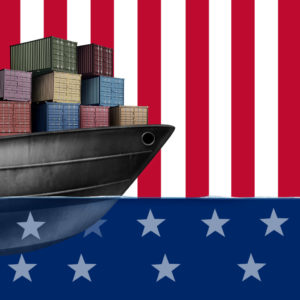News & Insights
State Treasury and Commerce issue Joint Advisory on North Korea’s Ballistic Missile Procurement Activities
The US Departments of State, Treasury and Commerce today issued a joint advisory to alert industry sectors worldwide to North Korea’s ballistic missile procurement activities, key North Korean procurement entities and the deceptive techniques employed by North Korean proliferators and procurement networks. The advisory urges companies to be aware of these activities and techniques, as well as to implement appropriate controls (e.g., Know-Your-Customer or KYC policies and procedures) to ensure compliance with US and multilateral controls on North Korea. The following provides a detailed summary of the advisory.
At the outset, the joint advisory states that the United States is committed to disrupting North Korea’s ballistic missile procurement network and activities that expose the electronics, chemical, metals and materials industries, as well as the financial, transportation and logistics sectors to the risk of potential violations of the United Nations and U.S. export controls and economic sanctions. According to the advisory, North Korea relies on foreign-sourced ballistic missile-related components that it cannot produce domestically, and uses an extensive overseas network of procurement agencies including officials operating from North Korean diplomatic missions and trade offices, third country nationals and foreign countries (e.g., Vietnam, China, and Russia). North Korea also collaborates with foreign-incorporated companies to acquire foreign-sourced basic commercial components. These entities purchase items, consolidate and repackage them for transfer to North Korea. In so doing, they conceal the true end-user from manufacturers and distributors of these items. They also mislabel sensitive goods in export documentation, falsely declaring specialized materials to be general purposes items that are widely commercially available.
The joint advisory encourages persons subject to US jurisdiction, as well as foreign persons that do business with or in the United States, to adopt a risk-based approach to sanctions compliance including the development, implementation and routine updating of formal compliance programs adapted and tailored to their specific activities and operations. The advisory observes that such programs should incorporate at least five essential components of compliance as follows: (1) management commitment to compliance; (2) regular risk assessment; (3) internal controls; (4) regular testing and auditing; and, (5) training.
Entities dealing in the following types of goods are also urged to adopt due diligence practices to ensure that North Korea and North Korean entities are not the final destination for their products:
- Multi-axle heavy vehicles, chassis, parts and components;
- Heat resistant steels, aluminum and specialty materials containing titanium;
- Bearings;
- Isostatic presses, horizontal or vertical continuous kneaders/mixers with heating and extruding capability;
- Filament winders and winding equipment;
- Certain precursor chemicals;
- Certain electronics (e.g., relays, digital signal processor chips, analog-to-digital converter chips, digital-to-analog converter chips, resolver-to-digital converter chips)
- Guidance, navigation and control devices (e.g., certain receivers, accelerometers, gyroscopes, Inertial Measurement Units (IMUs);
- Carbon fiber for composite motor cases; and,
- Solid propellant including aluminum powder an ammonium perchlorate.
Recommended due diligence practices, largely derived from the “Know Your Customer” Guidance in Supplement No. 3 to Part 732 of the Export Administration Regulations, include thoroughly researching new or unfamiliar customers, as well as performing additional scrutiny where the customer—
- Places unexpected and/or high-value orders for sophisticated equipment;
- Is a reseller or distributor—US companies should request information about the end-user;
- Has no website or social media, and is not listed in online business directories;
- Has an address similar to an entity listed on the Consolidated Screening List;
- Has an address that indicates the customer is located close to end users of concern or co-located with an entity listed on the BIS’ Entity List; or,
- Places, orders and makes all shipping arrangements through a freight forwarding service—US companies are urged to request a copy of the Electronic Export Information (EEI) filing to ensure the declared information is accurate and complete.
For further details, see:
https://www.bis.doc.gov/index.php/documents/pdfs/2600-2020-north-korea-ballistic-missile-advisory


